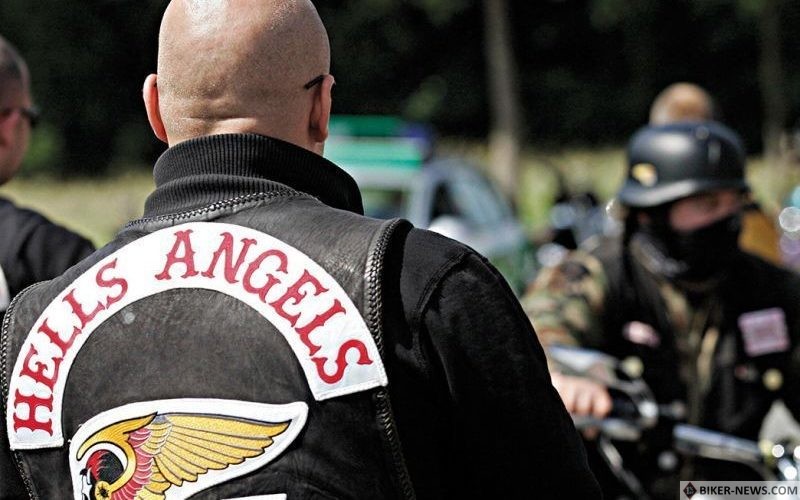UCLUELET — The small craft harbour here in this stunning spot on Vancouver Island’s west coast is a hub of activity.
Tourists from all over the world board sport-fishing charters and whale-watching boats to check out the rugged coastline. Commercial fishermen tend to their vessels. And visitors sail in for a day or two on boats based in Vancouver, Victoria or farther away.
But all is quiet on the Astral Blue — a 14-metre sailboat whose last two crewmen mysteriously disappeared in the mid-afternoon of May 16, 2018.
The bodies of Squamish resident Dan Archbald and his close friend Ryan Daley, of Jordan River, were found less than a month later on a rutted decommissioned logging road about 12 kilometres from the harbour.
Fifteen months have passed and no one has been charged with their murders.
But a Postmedia investigation has found that the two men were likely casualties of a botched cocaine-smuggling job that they were recruited to do by a Lower Mainland biker.
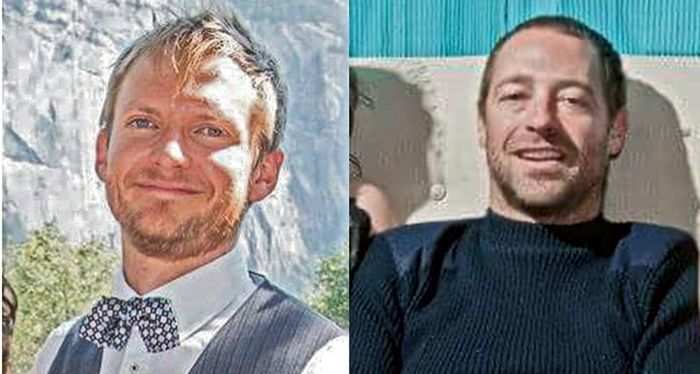
RCMP Supt. Sanjaya Wijayakoon, who oversees the Vancouver Island Integrated Major Crime Unit, told Postmedia that the police investigation is still extremely active.
“They are absolutely continuing to investigate both of these deaths. Right now, they are in the process of analyzing physical and digital evidence. They are still speaking to potential witnesses and they are trying to figure out a time line leading up to both Daley and Archbald’s deaths,” Wijayakoon said in a recent interview.
Key to that time line is figuring out what the two men did between their landing here on Sunday, May 13 — Mother’s Day — and when they made a final eerie appearance on the harbour security camera three days later, lugging heavy duffel bags out though the parking lot.
Wijayakoon said investigators still need the public’s help to put together all the pieces of the puzzle.
“I know my guys are still hoping that people in the public are able to come forward and that something triggers their memory and they come and talk to us. We are still hoping for that,” he said.
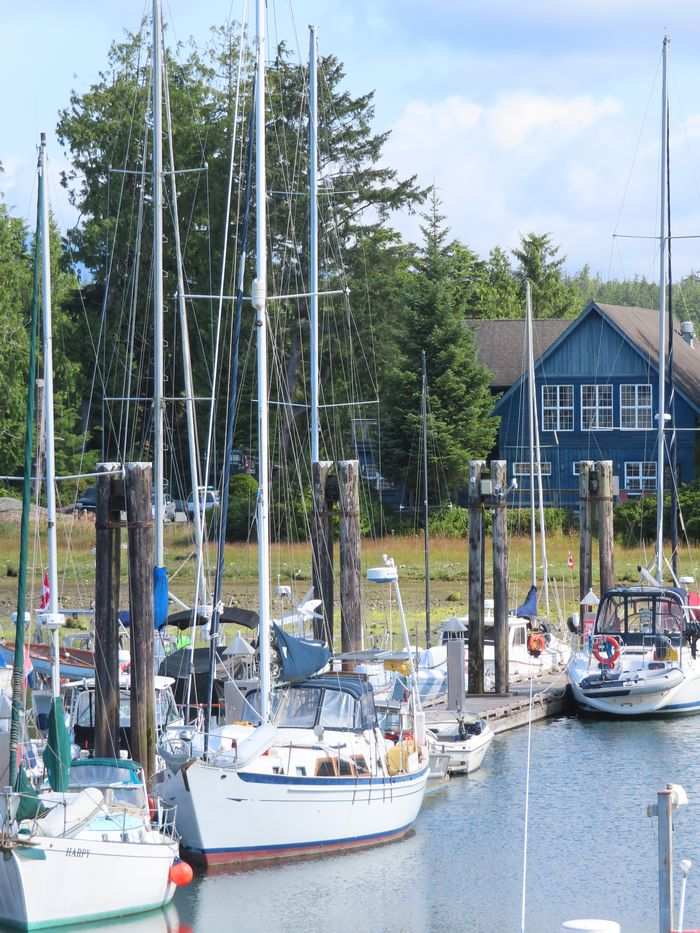
The Astral Blue looks much as it did when it arrived here. The deck is strewn with yellow, red and blue plastic containers. There’s a small rusted-out barbecue tipped over near the stern. A rubber dinghy is upside down over the cabin.
Some fibreglass on the starboard side is damaged. There is no indication of anything untoward.
The white and blue sailboat, built in Taiwan in 1979, was registered with Transport Canada on July 25, 2016, listing its home port as Vancouver, despite then never having landed in Canada.
The boat’s owner remains a B.C. company called Astral Ocean Expeditions Inc.
Corporate records obtained by Postmedia show Archbald and a friend registered the company in B.C. on May 10, 2016. Its address is listed as a Richmond lawyer’s office.
The friend, who asked not to be identified, told Postmedia that he owned only a one per cent share of the company and had no direct involvement with the purchase of the Astral Blue.
“Technically, I suppose I’m an owner,” he said, adding that the boat is really owned by Archbald’s widow, who is trying to sell it.
He said he and Archbald had talked for years about running a charter business on the West Coast.
“I am also a sailor and if I had the opportunity to do some trips, it would have been great,” he said. “But it wasn’t meant to be a business I was running.”
He confirmed that as he understood it, the boat was purchased in Ecuador, then moved to Panama where it was moored until Archbald and Daley began their fateful eight-week journey last year.
“I wasn’t even tracking it,” the friend said.
He would have been surprised if Archbald had got mixed up in a drug-smuggling operation, he said, though he admitted that is now the rumour circulating around Squamish and here in Ucluelet.
“I have talked to the police a few times. I didn’t have much to offer them,” he said. “Dan was one of my better friends and I miss him a lot.”
Archbald, a 37-year-old father of two, sometimes worked in construction. And sometimes he worked in the film industry.
Sometimes he was “tight for money,” the friend said, adding that he did not know Daley, a 43-year-old former Squamish resident.
Messages left for several relatives and friends of each man asking for comment for this story were not returned.
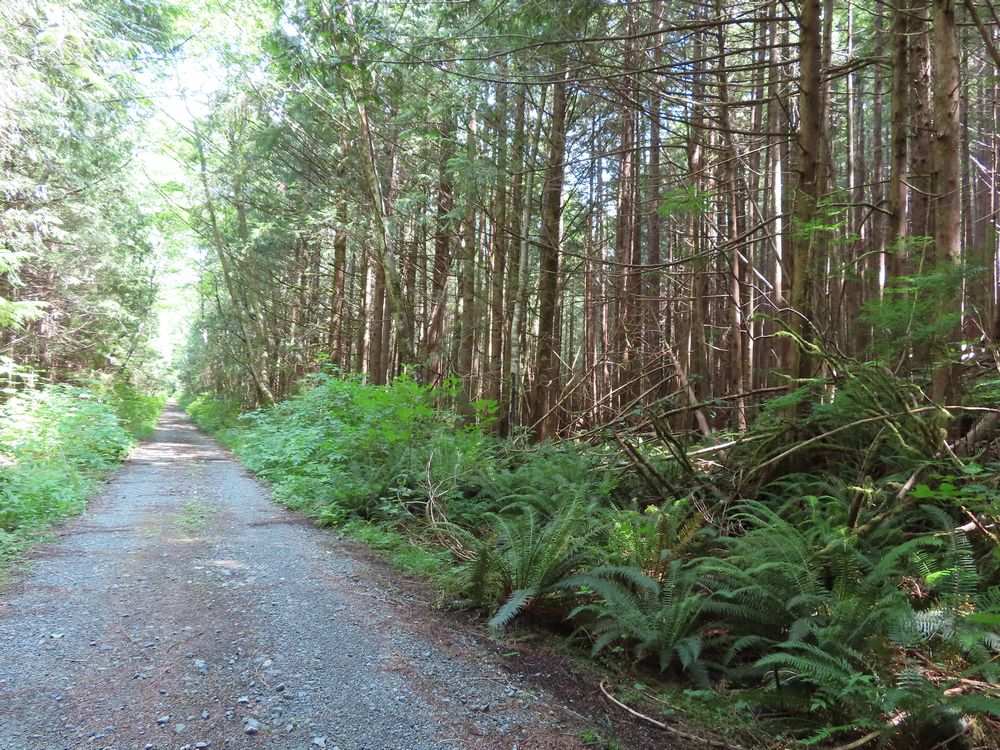
Postmedia has learned that the pair agreed to sail from Panama to Canada with a load of cocaine, believed to total several hundred kilograms. The person behind the smuggling operation is a full-patch Hells Angel, the sources said.
As the men got closer to the B.C. coast, they encountered a U.S. government vessel and panicked. They dumped most of their illicit cargo overboard.
The problem is that they kept some of the cocaine for themselves without telling the person who hired them. Their plan was to dump it at the last minute if they saw anything suspicious as they approached Ucluelet, the sources said.
While authorities didn’t intercept Archbald and Daley, and the remaining cocaine, when they arrived in Ucluelet, associates of the Hells Angel did.
Postmedia has learned that Hells Angels Chad Wilson — a friend of the person behind the cocaine shipment — was tasked with taking care of “the problem” in Ucluelet. Wilson, who was murdered last November, was on Vancouver Island at the time that Archbald and Daley went missing, sources confirmed.
Wijayakoon, the RCMP superintendent overseeing the investigative team, wouldn’t comment specifically on the information obtained by Postmedia.
“My guys are looking at all avenues and it is very, very active still,” he said.
Retired Mountie Pat Convey is all too familiar with the situation in which Archbald and Daley likely found themselves.
When he was a senior member of the RCMP’s Vancouver Island drug squad, he investigated similar cases along the coast here where drugs were smuggled aboard sailboats and fishing vessels. Organized crime “absolutely” sees marine transportation as a tried and true method to move drugs, Convey said.
The largest bust came in February 2001 when U.S. agents intercepted the Western Wind in the Strait of Juan de Fuca off southern Vancouver Island. The fish boat carried more than two tonnes of cocaine destined for Canada.
Boat owner John “Phil” Stirling and three crewmen were arrested and turned over to the RCMP. But they were never charged despite the record drug haul.
“As far as contraband, it was the biggest,” Convey said of the Western Wind.
Stirling continued to sail in troubled waters for years afterwards.
“He is a pretty infamous old bandit as far as bringing stuff in,” Convey said.
In May 2006, Stirling and four others were arrested again — this time here in Ucluelet — after police found $6.5-million worth of marijuana aboard a 47-metre fish boat registered to Stirling. The men were all charged with drug-related offences, but all counts were later stayed.
The Americans captured the notorious B.C. skipper off the coast of Colombia in 2011. His sailboat carried 381 kilos of cocaine. He pleaded guilty in 2013 in Florida and was sentenced to seven years. Less than a year after his 2018 release, Stirling, now 65, was found alone on another vessel off the coast of Oregon this past April. The boat carried 28 seven-gallon jugs containing liquid methamphetamine. He goes to trial in Portland later this month on drug smuggling charges.
Convey said that once someone agrees to sail a shipment of drugs for organized crime, they are responsible for any loads lost — meaning they usually have to continue transporting the criminal contraband to pay off the debt.
“You will be told that whether you like this or whether you don’t like this, you are going to go do this,” Convey said. “If you don’t comply, your chances of survival are not good.”
Like Archbald, Stirling would register a company in B.C., then purchase a vessel in the company’s name. He once told a Province reporter that the record Western Wind shipment was done for the benefit of some B.C. Hells Angels.
Convey said even people without criminal records are willing to take the risk, hoping for a big payoff. Maybe they think they can get away with it just once.
“There is a lot of money involved,” he said. “Just the investment put into it for purchasing the drugs is a large amount of money. So it is not something where one individual would just go down there and pick up a load and come up here and distribute it. It is all taken care of a long time before they set sail from here as to what they are going to do, what their plan is. And also who is going to be involved along the way.”
Sometimes a relatively small vessel carrying cocaine will sail right into a harbour in a place like Ucluelet, which doesn’t have a Canada Border Services Agency post.
And sometimes it will be a “mother ship” operation “where they will come up and they will be met offshore, right out in the international waters, by off load boats that will come right up and meet them and then distribute (the drugs) to several different places or one place depending on what they contracted,” Convey said.
“I have been out of the game for awhile, but I don’t see anything changing significantly. I got involved in it as far back as the 70s and it didn’t change a lot even in the 2000s when I finally retired.”
Stirling is not the only “bandit” using the open seas to smuggle narcotics into Canada.
In March 2010, Vancouver Island commercial diver Scott Pederson and Mexican citizen Vincente Serrano-Hernandez transported 1,001 one-kilogram bricks of cocaine from Panama to Port Hardy via Ecuador aboard the sailing vessel Huntress. Both were convicted and sentenced to 16 years.
Both have since been released. Parole documents obtained by Postmedia say that Pederson now owns two food carts, which prompted some concern from the parole board in July 2017.
“While there may be some concerns with respect to the idea of a convicted drug importer operating a business that is based primarily in cash and therefore would be a good front for drug trafficking or money laundering, there is no reliable and persuasive information indicating you are involved in any illegal activity,” the board’s written decision said.
As for Hernandez, he continued to deny knowledge of the tonne of cocaine he sailed into B.C. waters, claiming he was “to be paid $2,000 to accompany the lone captain to Canada and that once in Canada you would be offered a job,” the parole board noted in 2016. “In Mexico, you lived in the Sinaloa region which is well known for drug cartel activities. You have denied any involvement with gangs or Mexican cartels.”
He has since been deported.
The drive from the small craft harbour through the Ucluelet-Tofino junction then east along the Pacific Rim Highway to the entrance to E Road takes less than 15 minutes at the posted speed limit.
The killer or killers would have driven through the dense coastal forest, past Lost Shoe #1 Creek, then Lost Shoe #2 Creek before turning right on the gravel road where Archbald and Daley were dumped.
After about 300 metres, the unmarked logging road is barely more than a trail, suggesting the suspects would have had to turn around in the only small clearing to escape back to the highway. A woman walking her dogs found the remains of Archbald and Daley four weeks later.
The double murder — an extremely rare occurrence in this part of B.C. — has not really set the locals on edge. They don’t feel a strong connection to the case. They didn’t know the victims. They don’t believe that any suspects are in their midst.
The last person slain here was Shirley Ann Taylor-Seydel, who was bludgeoned to death on the docks on July 6, 1991 by fisherman Steven Hillairet, a stranger with mental health issues. There is a small picnic area in her memory overlooking the harbour.
The Astral Blue remains moored here for now. A brokerage company has been contacted and the boat, estimated to be worth about $100,000, will soon be sold.
At the Cap’n Hook, a unique shop selling fishing tackle and cappuccino, patrons sip their coffee, look out over the harbour and speculate about whether the boat will go for a bargain price.
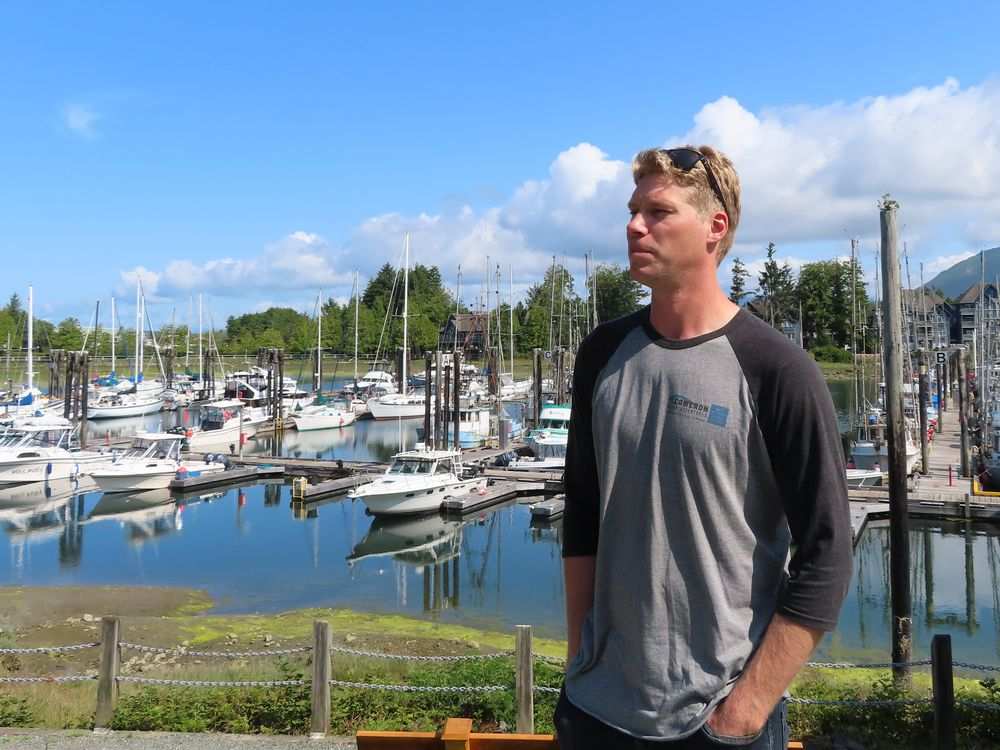
Caleb Cameron, who was born and raised in Ucluelet, is down on the docks every day operating his whale watching and sports fishing company — Cameron Ocean Adventures.
“When the murders happened, it seemed like a very isolated incident. There have been drug busts here in the past but not anything like this,” he said. “It seemed like a major case — a larger case than we usually see — because of all the police resources that were brought here.”
He didn’t see the two men at all between May 13 and 16, though he noticed the Astral Blue after it docked as a boat he wasn’t familiar with.
“It was fairly shocking. From the rumours that had been circulating that it was a drug boat that came up from Panama, it made sense,” he said. “I do have some people come down and ask about it. It is known on the dock as `the drug boat.’”
Ucluelet Mayor Mayco Noël said the murders have had “zero impact” on the community of 1,800.
“There is nobody up and arms, racing to the RCMP detachment saying that there’s a problem. It is something very isolated and local to that event,” Noël said this week. “It is just isolated to those certain groups and those individuals. No one in the community is feeling threatened any way.”
Ucluelet residents still “are just curious to know what happened,” the mayor said.
“Everyone has got their own theory so it will be interesting to see what actually comes out of it.”
Source: Vancouver Sun
